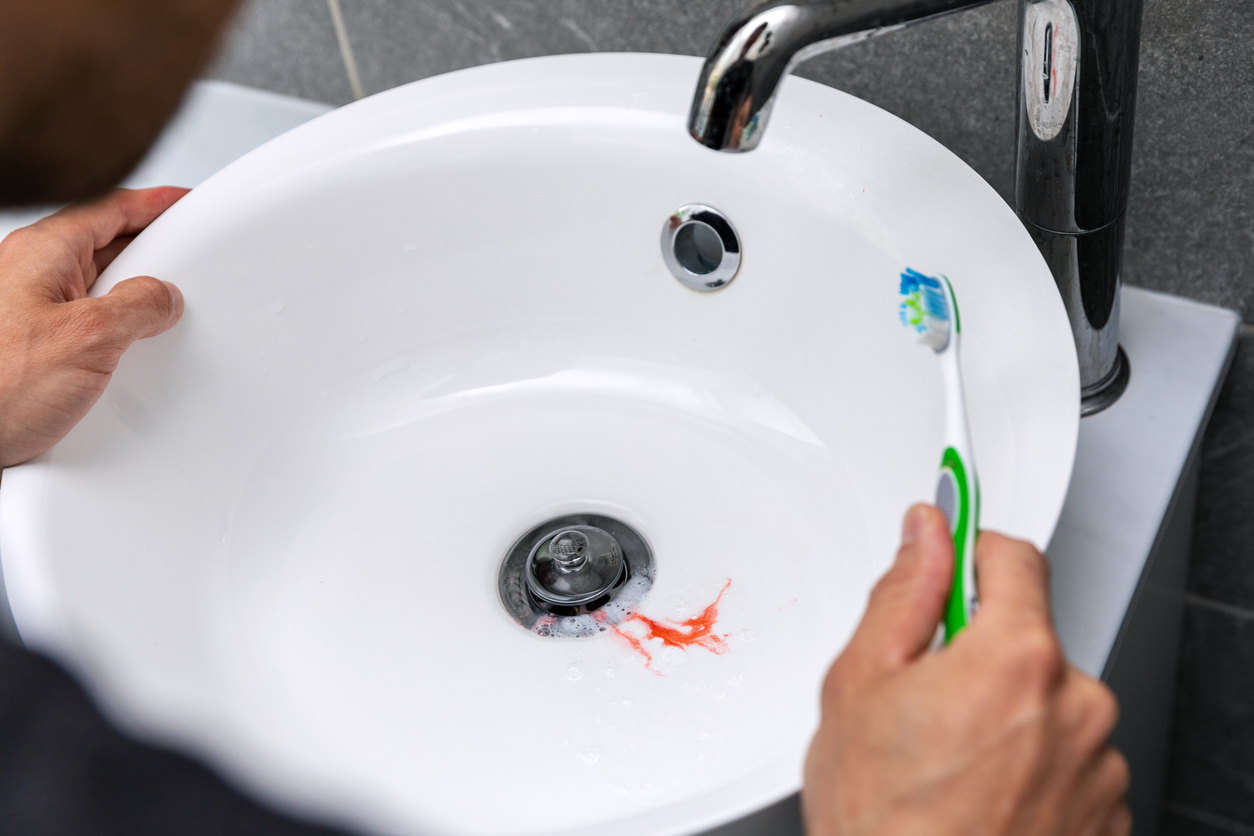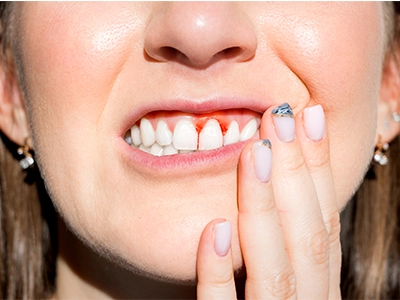Bleeding gums may occur for a variety of reasons: aggressive brushing, infrequent flossing, medications/health conditions, pregnancy, and more.
Bleeding gums are not necessarily something to worry about- but should not be ignored either. In some cases, this may be a sign of gum disease or other more serious oral or overall health conditions.
Some of the most common symptoms that accompany bleeding gums include tenderness and swelling.
In this article, we’ll discuss some of the most common causes of bleeding gums and when you should be concerned about this issue as well as tips for managing your bleeding gums.
If you’ve noticed blood in the sink when you brush your teeth, don’t panic. Bleeding gums are one of the most common dental/oral health issues. Occasional bleeding is normal and usually stops quickly and resolves within a few days.
If you are experiencing bleeding gums, ask yourself the following questions:
There are certain medications that can be an indirect contributor to bleeding gums. These medications can cause gums to swell, which makes it more difficult to clean them, increasing your risk of developing gum disease.
If you are taking blood thinners, your risk of bleeding gums is higher. These include:
- Aspirin
- Ticlid
- Plavix
- Warfarin
Since these medications impact your body’s ability to clot, taking them increases your risk of bleeding gums- especially during dental procedures. Therefore, if you are on any of these medications, alert your dental team so they can take special precautions
Hormonal changes (progesterone and estrogen) during pregnancy can increase your risk of developing gingivitis. In fact, research indicates that approximately 75% of women develop gingivitis while pregnant.
Conventional dentures are designed to rest on your gums. If they are fitted properly, you should not have any issues with them. However, if they are not properly fitted, they may rub on the gums, which can cause irritation and bleeding.
If you haven’t been flossing for some time and you’re just getting started, you may cause irritation and bleeding to your gums. This is normal and should subside as you get used to it.
Gingivitis is the first stage of periodontitis, also known as gum disease. This condition develops when bacteria and plaque remain on the gumline too long. Brushing and flossing regularly removes bacteria and plaque, preventing tooth decay and gingivitis.
However, if you are not brushing and flossing properly, plaque can harden into tartar- which can cause gums to bleed. Other indications that you may have gingivitis include swollen, sore gums.
While minor bleeding is not always an indication that there is a problem, there are certain signs/symptoms that there might be something serious:
- The bleeding is excessive and does not stop quickly
- Your dental appliances do not fit properly
- You are pregnant
If bleeding is caused by brushing aggressively or using a medium- or firm-bristled toothbrush, the problem should resolve itself within about a week. However, if the problem continues, you should make an appointment with your dentist for a diagnosis.
The first step to managing bleeding gums is proper oral hygiene. This means brushing at least twice daily and flossing at least once.
Additionally, you should visit your dentist every 6 months for an exam and cleaning. Your dental team will be able to tell you if you are at risk of developing gum disease or other serious conditions and can teach you how to properly brush and floss your teeth to reduce your risk of complications.
If you’ve recently gotten dentures and your gums are bleeding, talk to your dentist about having them checked to ensure they fit properly. You may need to have them relined or replaced.
You may also need to use an alcohol-free antiseptic mouthwash to reduce bacteria and plaque buildup. If your gums are sensitive and susceptible to bleeding, a warm saltwater rinse can help.
Be sure to use a soft-bristled toothbrush, especially if you commonly experience bleeding after brushing. Medium and firm bristles can be harsh on sensitive gums.
An electric toothbrush may be a better option and can help you clean along your gum line more thoroughly.










